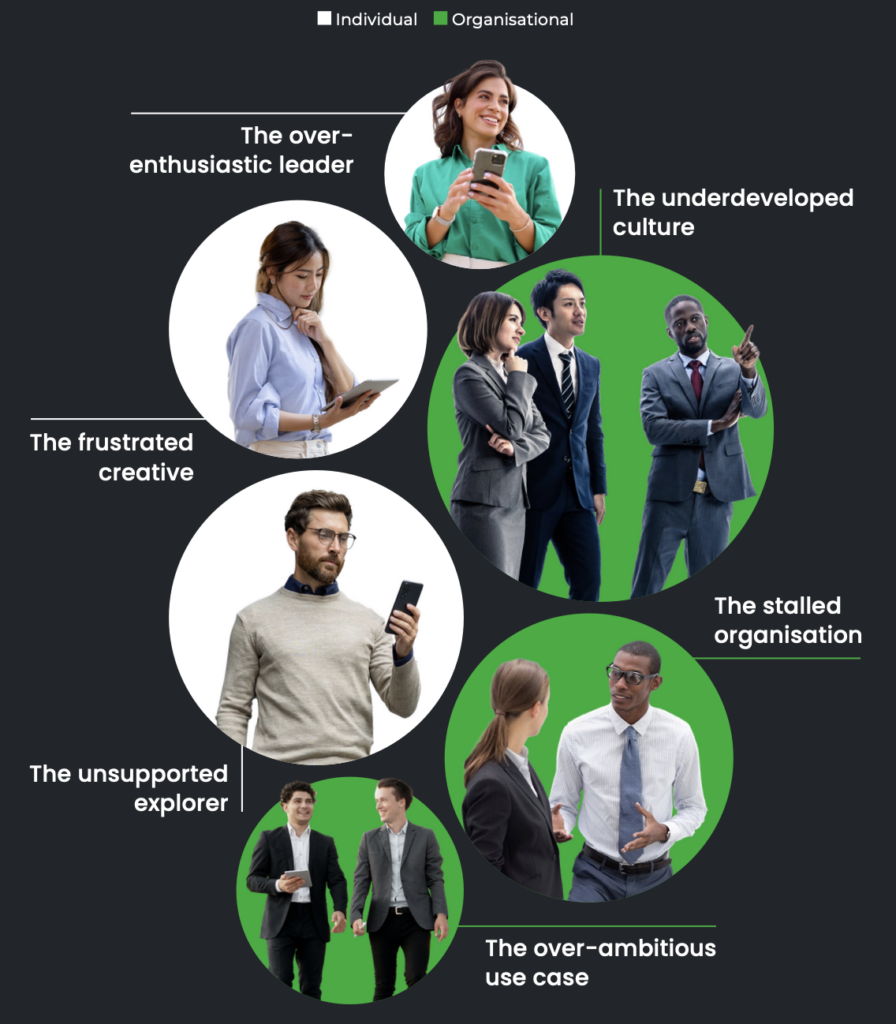When we think about AI readiness and adoption, the focus often shifts straight to the tech: devices, algorithms, infrastructure. But as highlighted in the Laying the groundwork for AI whitepaper, that’s only half the story. AI success isn’t just about the systems and software you build – it’s about how people work together and whether the organisation has the right mindset to embrace change.
In the public sector this socio-technical balance is crucial. Many organisations remain in reactive mode, chasing business demands but held back by cultural immaturity. It’s a familiar picture. Leaders are confident about their tech investments but less certain about the cultural shifts needed to make it all work. This paper frames those challenges brilliantly, giving practical advice to navigate them.
Culture: The enabler (or the blocker) in the utilities industry
The whitepaper hammers home an important truth. Culture can make or break AI adoption. From my experience in the utilities sector, I’ve seen how cultural resistance can undermine even the best technology. Data silos persist because teams are stuck in a ‘not my problem’ mindset. Governance gets muddled as decision-making stays fragmented. And time and again, organisations fail to create trust in their data, leaving the people who need it most, without clear or actionable insights.
Here’s the rub – organisations that get this right don’t just build better tools. They shift how people think and work. For example, when data stops being something teams hoard and starts being a shared resource, you unlock entirely new possibilities for innovation.Take a look at my previous blog behavioural change starts with data for more on this angle.
Identifying the archetypes in the utilities sector
What resonated with me personally was the idea of archetypes in the whitepaper – personas like the ‘Frustrated Creative’ and the ‘Unsupported Explorer.’ These are people who want to innovate but feel stuck.

In the utilities and energy sector, I’ve met plenty of ‘Frustrated Creatives’. People such as engineering schedulers trying to streamline operations or network engineers on the ground brimming with ideas to improve site efficiency. And there are ‘Unsupported Explorers,’ like data specialists uncovering patterns but struggling to secure buy-in to act on them. These archetypes highlight a fundamental truth. Innovation isn’t just about resources. It’s about making sure people have the right cultural and structural support to drive change.
A practical path towards AI adoption
One of the most compelling insights from the whitepaper is the helical model – a dynamic approach where culture, technology, and use cases reinforce one another. It’s not a linear journey. Instead, it’s about taking small steps that build momentum.
In utilities, for instance, the first move is often to deploy advanced tech – things like predictive analytics or digital twins. These solutions deliver quick wins, helping teams see what’s possible. As the culture shifts to embrace these tools, new use cases emerge, creating a flywheel effect of improvement. But the reality is that every organisation’s balance of culture, technology, and use cases is different.
Bridging the gap between AI ambition and action
For leaders in the public sector or utilities, this whitepaper doesn’t just talk about AI readiness, it offers a playbook. It’s a reminder that achieving real progress isn’t about chasing hype or trying to deploy the flashiest tech. You need to know where you are, recognise what’s holding your organisation back, and create the conditions for sustainable growth.
This paper lands because it’s relatable. It mirrors the conversations I’ve had with leaders across industries. Don’t reinvent the wheel. Look at how people, processes, and technology can work together to drive meaningful outcomes. If you want to bridge the gap between ambition and action, this thought-leadership piece on Laying the groundwork for AI is worth a read. It’s practical, insightful, and refreshingly honest about the challenges and opportunities of achieving AI readiness.




